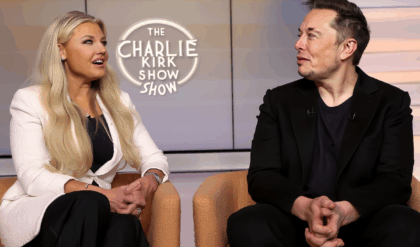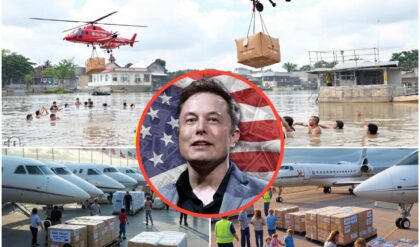South African-born billionaire Elon Musk is once again making headlines in his country of origin, this time with ambitious plans to transform the Denel Overberg Test Range, located near the coastal town of Arniston outside Cape Town, into a launch site for SpaceX missions and Starlink satellites. This development, reported across various media outlets in mid-2025, signals a potential milestone for South Africa’s burgeoning space industry and could position the African continent as a key player in the global space economy. The strategic interest in the Overberg site, coupled with its unique geographical advantages, underscores Musk’s vision to diversify SpaceX’s global launch infrastructure while expanding Starlink’s reach to underserved regions. This move, however, comes with regulatory and geopolitical challenges that could shape its trajectory.
A Strategic Move for SpaceX
Elon Musk, the CEO of SpaceX and founder of Starlink, has long been known for his audacious goals, from colonizing Mars to providing global broadband internet through a constellation of low-Earth orbit (LEO) satellites. His interest in the Denel Overberg Test Range, a high-security military facility managed by South Africa’s state-owned defense and aerospace group Denel, aligns with SpaceX’s strategy to expand its launch capabilities beyond its primary sites in the United States, such as Cape Canaveral, Florida, and Vandenberg, California. The Overberg site, revitalized by the Aerospace Systems Research Institute (ASRI) at the University of KwaZulu-Natal, has emerged as a promising hub for aerospace innovation, making it an attractive prospect for SpaceX.
The Denel Overberg Test Range, originally established in the 1980s for missile testing, has evolved significantly over the past decade. Under ASRI’s leadership, the site has conducted successful suborbital rocket launches, with missions reaching altitudes of nearly 18 kilometers. In October 2024, ASRI commissioned a state-of-the-art suborbital launch gantry capable of supporting hybrid rockets like the Phoenix series and larger sounding rockets. The site’s infrastructure, including a six-story launch gantry and plans for advanced manufacturing labs and green propellant facilities, positions it as a viable candidate for orbital launches by 2028. Musk’s interest, first reported in June 2025, could accelerate this timeline, potentially establishing the first SpaceX-operated launch pad on African soil.
The strategic value of the Overberg site lies in its geographical location along South Africa’s southern coastline. Experts note that the site is ideally suited for launching satellites into polar orbits, which pass over the Earth’s poles and are critical for applications like climate monitoring, imaging, and global communications. The open ocean to the south provides large safety corridors, minimizing risks associated with rocket launches. For SpaceX, the site offers a unique opportunity to deploy Starlink satellites into polar orbits, enhancing the constellation’s ability to provide high-speed internet to remote and underserved regions, including parts of Africa.
Starlink’s Role and Regulatory Hurdles
Starlink, a subsidiary of SpaceX, operates a constellation of over 7,600 satellites as of May 2025, accounting for approximately 65% of all active satellites in orbit. The service aims to deliver high-speed internet to nearly every corner of the globe, with a particular focus on bridging the digital divide in areas with limited connectivity. In Africa, Starlink has already launched operations in countries like Nigeria, Kenya, and Rwanda, but its rollout in South Africa has faced significant regulatory challenges, primarily due to the country’s Broad-Based Black Economic Empowerment (B-BBEE) policy. This policy requires foreign companies to meet specific ownership criteria, which Musk has publicly criticized as discriminatory.
During a closed-door meeting at the White House on May 21, 2025, involving Musk, U.S. President Donald Trump, and South African President Cyril Ramaphosa, Musk reportedly expressed interest in the Overberg site for SpaceX launches but did not mention Starlink explicitly. Sources suggest this omission was deliberate, as the South African government has initiated a review of its B-BBEE policy in response to Starlink’s licensing challenges. The review, overseen by the Independent Communications Authority of South Africa and announced in September 2024, is ongoing, with no resolution expected in the near term. Despite these hurdles, the potential to launch Starlink satellites directly from South Africa could accelerate the service’s expansion across the continent, supporting Musk’s broader ambition of global internet connectivity.
Economic and Infrastructure Opportunities
Musk’s interest in the Overberg Test Range is not only a boon for SpaceX but also a transformative opportunity for South Africa’s economy. The Denel Overberg Test Range is projecting sustained profitability over the next three years, with planned sales exceeding ZAR 400 million (approximately USD 22.7 million) by 2028. A partnership with SpaceX could significantly enhance these prospects by attracting infrastructure investment and creating jobs in the Western Cape. The development of orbital launch facilities would require upgrades to telemetry and tracking systems, as well as the construction of new launch pads, generating opportunities for civil construction firms, logistics companies, and materials suppliers.
South Africa’s space sector is already gaining momentum, with over 30 space companies and startups collaborating with the South African National Space Agency (SANSA). The country’s history of satellite development, including the launch of SunSat in 1999 and SumbandilaSat in 2009, demonstrates its growing expertise. A SpaceX collaboration could catalyze further investment, positioning South Africa as a leader in Africa’s commercial space sector, which currently comprises over 400 space-related enterprises continent-wide. Additionally, Denel’s plans to develop sovereign launch capabilities, supported by a ZAR 16 million (USD 908,000) annual contract with the University of KwaZulu-Natal, would benefit from SpaceX’s expertise and resources.
Geopolitical and Strategic Implications
Musk’s interest in the Overberg site comes at a time of shifting geopolitics, with South Africa strengthening ties with international space partners in the U.S., Europe, and China. The U.S. has a history of collaboration with South Africa, including support for the SunSat launch and plans for a new deep-space ground station in Matjiesfontein, Western Cape, to support NASA’s Artemis missions. Meanwhile, China has signed agreements with South Africa on crewed spaceflight and the planned Chinese-Russian International Lunar Research Station. The European Space Agency (ESA) also maintains partnerships with South African institutions. A SpaceX presence at Overberg could enhance these collaborations, but it may also complicate South Africa’s balancing act between global powers.
The White House meeting in May 2025 highlighted additional complexities, as Musk raised concerns about the global shortage of rare-earth magnets, critical for SpaceX’s operations, amid China’s export restrictions. South Africa’s Steenkampskraal mine, one of the world’s richest sources of rare earths, could play a role in addressing this shortage, further intertwining SpaceX’s interests with South Africa’s strategic resources. However, Musk’s public feud with Trump, which escalated after the meeting, underscores the volatile geopolitical context surrounding this proposal. Despite their reconciliation, the tensions highlight the challenges of aligning Musk’s business ambitions with international diplomacy.
Challenges and Risks
While the potential for a SpaceX launch site at Overberg is exciting, several challenges remain. Denel’s 2025–2026 Corporate Plan identifies risks such as a backlog in capital investment, critical skills shortages, and the lingering effects of past underfunding. These issues could hinder the site’s readiness for orbital launches without significant external support. Additionally, regulatory delays related to Starlink’s operations in South Africa could spill over into SpaceX’s launch plans, particularly if B-BBEE compliance remains a sticking point.
Public sentiment, as reflected in posts on X, is largely positive, with users like @Ziyaggy suggesting that Overberg would be a “perfect location for a Starbase in South Africa.” However, skepticism about foreign investment and its implications for local sovereignty persists, echoing concerns raised in other countries like Bolivia, where Starlink’s dominance has sparked regulatory pushback. South Africa will need to navigate these concerns carefully to maximize the benefits of a SpaceX partnership while maintaining control over its space ambitions.
A New Chapter for South Africa’s Space Ambitions
Elon Musk’s exploration of the Denel Overberg Test Range as a SpaceX launch site represents a pivotal moment for South Africa’s space industry. The site’s strategic location, combined with ASRI’s advancements and Denel’s profitability projections, makes it an ideal candidate for SpaceX’s ambitions. A successful partnership could fast-track South Africa’s goal of achieving orbital launch capability, boost its economy, and enhance Starlink’s mission to connect the unconnected. However, regulatory hurdles, geopolitical complexities, and infrastructure challenges must be addressed to realize this vision.
As South Africa stands on the cusp of becoming a global space hub, Musk’s involvement could catalyze a new era of innovation and opportunity. The image of SpaceX rockets soaring from Arniston’s coastline, carrying Starlink satellites into polar orbits, is a powerful symbol of what’s possible when ambition meets opportunity. For now, the world watches as South Africa and SpaceX negotiate the path forward, with the potential to reshape the future of space exploration on the African continent.





